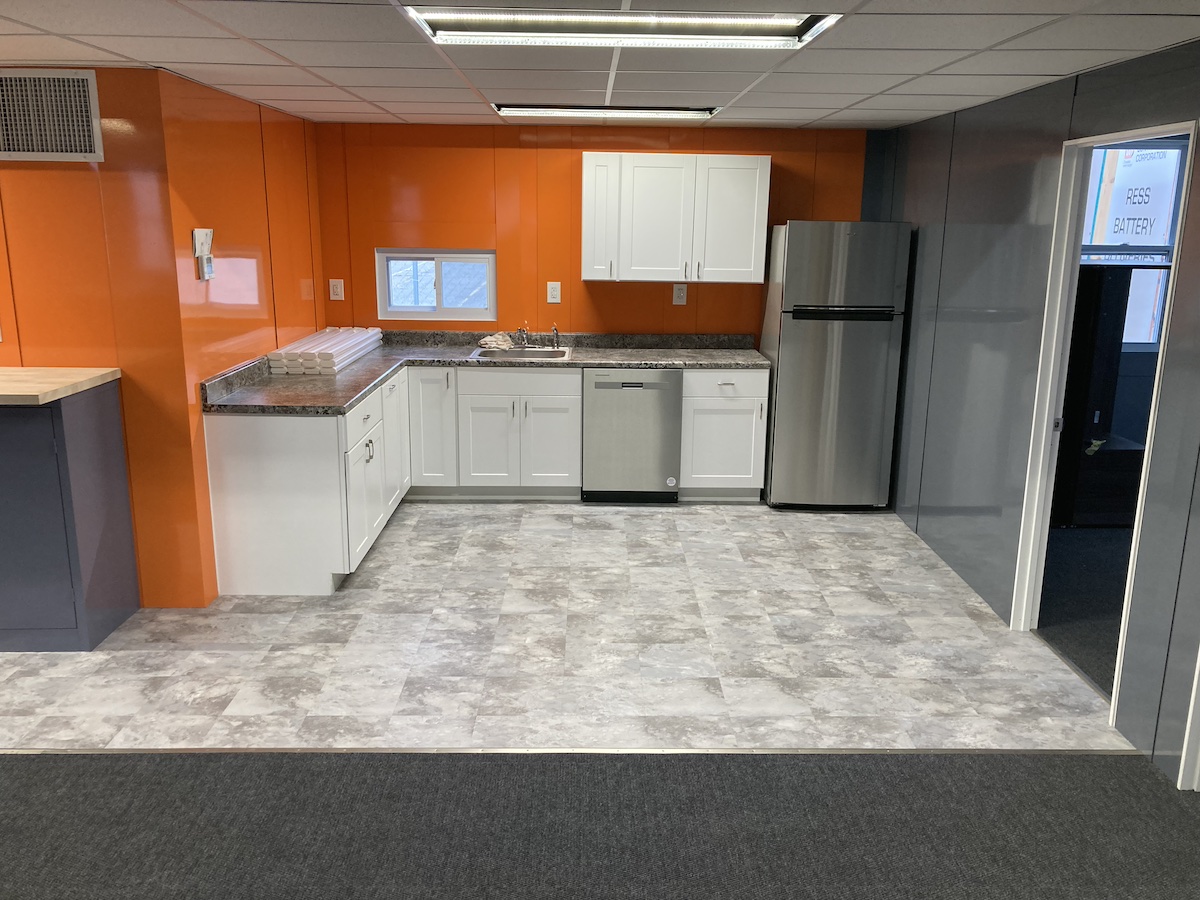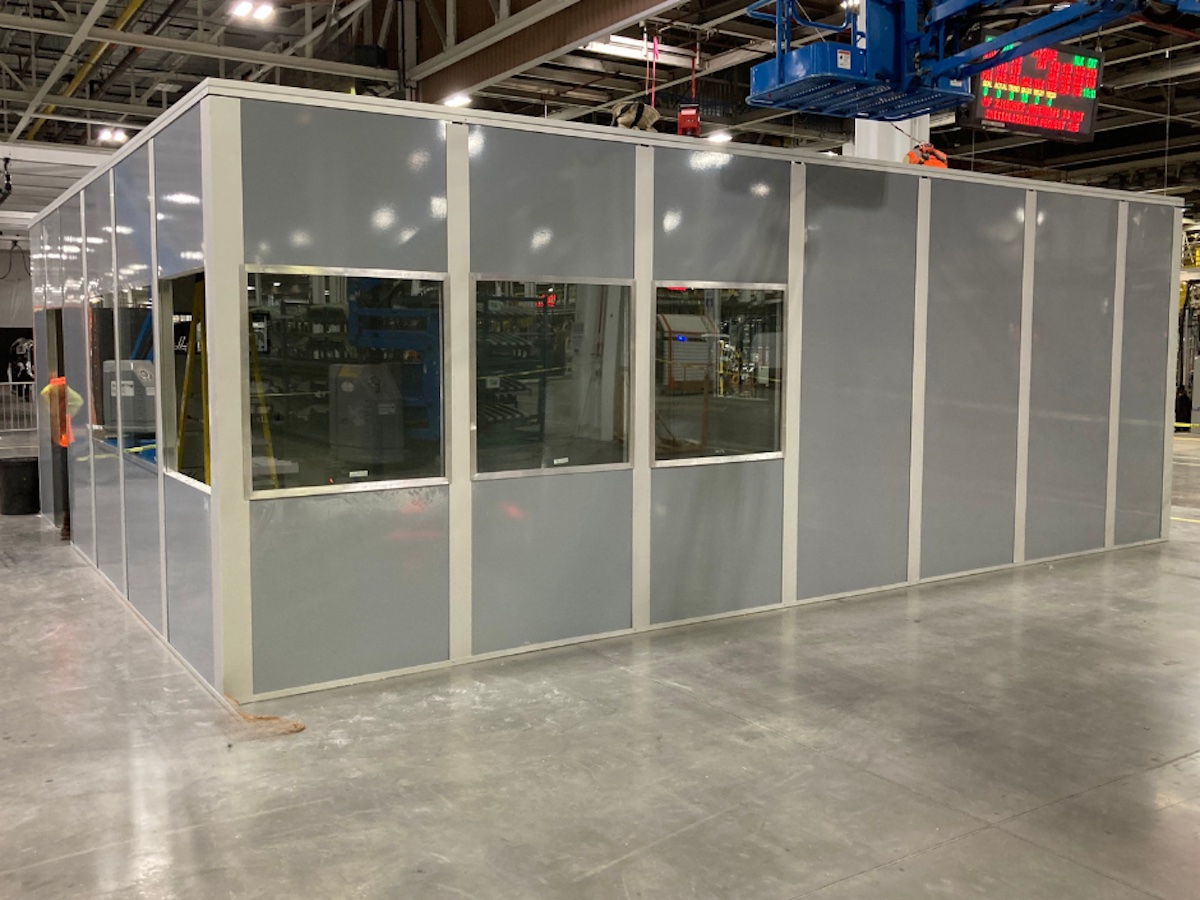In today’s fast-paced industrial landscape, companies are under constant pressure to adapt, innovate, and maintain efficient operations.
One growing solution that has emerged to support these demands is the use of modular room systems. These prefabricated, customizable spaces provide the flexibility that modern industries require – and among them, modular team rooms stand out as a particularly valuable asset.
Whether for manufacturing plants, warehouses, or high-tech production facilities, modular team rooms offer a functional, flexible environment where teams can collaborate, plan, and communicate effectively.
In this guide, we’ll dive into the advantages of modular team rooms, their most common industrial applications, and why they are becoming a must-have for companies striving for lean, agile operations.
What Are Modular Room Solutions?
Definition and Key Components
Modular room solutions are prefabricated spaces that can be installed within existing facilities to create dedicated areas for specific tasks.
These rooms are manufactured off-site, delivered in parts, and assembled on-site, making them a time-saving and cost-effective alternative to traditional construction.
They typically include:
- Structural wall panels
- Doors and windows
- Electrical and lighting systems
- HVAC components
- Interior finishes based on need (insulation, soundproofing, etc.)
Types of Modular Rooms Used in Industry
While many modular room types are available, common industrial examples include:
- Modular offices
- Control or server rooms
- Cleanrooms
- Quality assurance labs
- Modular team rooms
The Rise of Modular Team Rooms in Industrial Environments
What Are Modular Team Rooms?
Modular team rooms are self-contained, adaptable spaces created within industrial buildings to support team functions such as collaboration, project planning, and real-time communication. They are designed to be integrated into busy warehouse floors, production areas, or logistics zones.

These rooms act as centralized hubs for teams that need proximity to operations while still requiring a quieter, more focused environment.
Why They Matter in Today’s Workplaces
Modern industrial facilities are complex, fast-moving ecosystems. Modular team rooms enable team leads, supervisors, engineers, and other stakeholders to:
- Conduct daily planning or shift meetings
- Monitor production and quality in real time
- Host cross-functional collaboration sessions
- Provide a dedicated space for administrative or management tasks
Key Benefits of Modular Team Rooms for Industrial Applications
Fast Installation with Minimal Disruption
Traditional construction projects can stretch over weeks or months, disrupting daily operations. Modular team rooms, however, are built off-site and quickly assembled in place—sometimes over a weekend or during planned downtime. This results in:
- Less disruption to ongoing work
- Faster project timelines
- Lower risk of project delays
Cost-Effective Compared to Traditional Construction
Modular rooms offer significant cost savings. They require fewer materials, less labor, and fewer regulatory hurdles. Additionally, because they’re reusable and adaptable, modular team rooms provide long-term value.
Improved Worker Collaboration and Productivity
Having a nearby dedicated space for communication and coordination boosts productivity. Teams can:
- Host quick strategy meetings
- Share updates and KPIs
- Troubleshoot issues on the spot This can lead to faster problem-solving, better team alignment, and more effective use of time.
Built-In Features Tailored for Industrial Use
Modular team rooms are designed with industrial challenges in mind. Many include:
- Sound-dampening materials to block out machinery noise
- Climate controls to ensure comfort
- Tech-ready layouts with data ports, power outlets, and AV connections
Common Industrial Use Cases for Modular Team Rooms
Manufacturing Plants
In factories and production environments, team rooms are often used for:
- Daily operations meetings
- Maintenance planning
- Engineering coordination
Warehousing and Distribution Centers
Warehouses benefit from modular team rooms by providing spaces for:
- Shift briefings
- Inventory planning
- Safety discussions
Automotive and Defense Industries
In more complex industrial environments, team rooms support:
- Project collaboration among engineers and QA teams
- Lean manufacturing initiatives
- Temporary office space for visiting project teams
Customization Options and Design Considerations
Interior Layouts and Furniture
Modular team rooms can be tailored to your needs, whether you prefer:
- Open layouts for collaboration
- Private workstations
- Conference-style setups
Technology Integration
To support modern teams, modular rooms can be equipped with:
- Ethernet connections
- Wi-Fi access points
- Video conferencing systems
- Monitors and whiteboards
Environmental Control
Comfort is crucial for team focus. Modular team rooms often include:
- Integrated HVAC systems
- LED lighting
- Acoustic insulation for privacy
Why Choose Modular Over Traditional Construction?
- Speed: Install in days instead of weeks
- Lower Costs: Save on labor and materials
- Adaptability: Expand, move, or reconfigure as needed
- Sustainability: Modular systems produce less construction waste
How Modular Team Rooms Support Lean and Agile Operations
Centralized Communication Hubs
By placing team rooms near production lines or work zones, companies improve real-time communication. Quick check-ins and decision-making reduce downtime and keep projects moving.
Space Optimization
Modular rooms allow you to transform underused corners or floor areas into productive spaces without overhauling your building’s infrastructure.
Real-Time Problem Solving
When team members can gather quickly to address issues, problems get solved faster. This supports lean principles of eliminating waste and maximizing efficiency.
Choosing the Right Modular Room Provider
What to Look For
- Experience in industrial installations
- Quality materials built for heavy-duty use
- Ability to fully customize layout and features
Installation & Ongoing Support
A good provider should offer:
- Turnkey design-to-installation services
- Ongoing maintenance or modification support
- Clear communication throughout the project
Frequently Asked Questions
What industries benefit the most from modular team rooms?
Industries with dynamic operations—like manufacturing, warehousing, automotive, and aerospace—see the most value from modular team rooms due to their need for flexible, adaptable collaboration spaces.
How long does it take to install a modular team room?
Most installations are completed in a matter of days, depending on the size and complexity of the project.
Are modular rooms soundproof or climate-controlled?
They can be. Many modular team rooms include noise-reducing panels and HVAC systems for maximum comfort and usability.
What is the typical lifespan of a modular team room?
With proper maintenance, modular rooms can last 10-25 years or more, depending on materials and usage.
Why Partner with Miller Fabricated Systems for Your Modular Team Room Needs
At Miller Fabricated Systems, we understand the unique demands of industrial environments. That’s why we specialize in building custom modular team rooms that meet the highest standards of durability, flexibility, and design.
Our experienced team works closely with manufacturing leaders, warehouse managers, and facility planners to deliver modular rooms that support communication, productivity, and operational efficiency. From initial design to final installation, we manage the entire process to ensure your team room fits seamlessly into your space and workflow.
With high-quality powder-coated steel, precision-engineered structures, and rapid turnaround times, Miller Fabricated Systems is proud to help businesses evolve with confidence. If you’re ready to enhance your workspace with a modular team room tailored to your needs, contact us today to get started.

